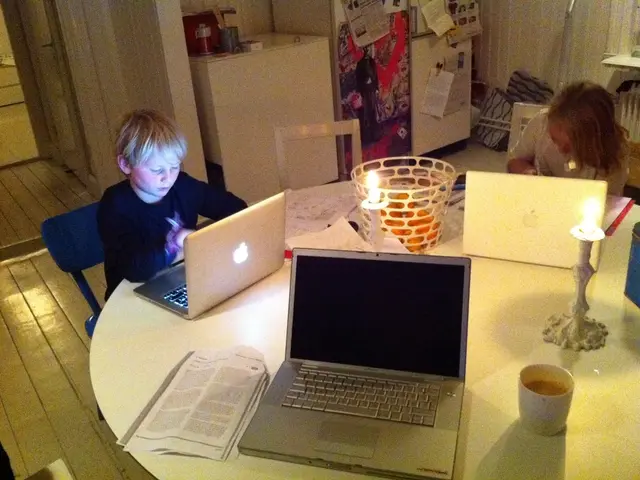Strategies for Workers to Overcome Exhaustion: Building Resilience in the Workplace
Burnout, a prevailing issue in today's workforce, is causing emotional, physical, and mental exhaustion due to prolonged stress and demanding workloads. As this condition spreads globally, manifesting in disengagement, cynicism, and ineffectiveness, fostering resilience has become not just beneficial but essential.
In a series of recent studies, the mental health of young people has been found to decline steadily over the past decade. The 2023 Global Resilience Report by Springfox revealed that individuals under the age of 30 have extremely low resilience levels, with women under 30 showing significantly lower resilience than men. This trend, when combined with the pressures facing younger workers during their early careers, can lead to high rates of disengagement, absenteeism, burnout, and ultimately, staff turnover.
Similarly, women face unique pressures due to societal expectations, workplace biases, and traditional gender roles. These factors contribute to heightened stress and burnout as women strive to excel professionally while also taking on primary caregiving roles. Workplaces that prioritize long hours and undervalue work-life balance exacerbate these challenges, as career advancement becomes a direct competitor with personal and familial well-being.
Advocating for self-care and mental well-being is crucial for women in navigating these complexities. Younger workers can benefit from building resilience to manage the pressures of their early careers effectively. Through self-care, setting boundaries, seeking support, and practicing mindfulness, both groups can reduce burnout risks and thrive both personally and professionally.
In terms of cultivating resilience, organizations can offer professional development opportunities, mentorship programs, and provide employee assistance programs (EAPs) that include mental health counseling and lifestyle coaching. Implementing mindfulness programs, health and wellness initiatives, and fostering an open communication culture can also help employees manage stress and improve their mental well-being.
By implementing these strategies, organizations can create a supportive environment that helps young workers and women reduce burnout risks and improve their overall well-being. Promoting resilience, self-care, setting boundaries, encouraging seeking support, and practicing mindfulness are vital steps in preventing burnout and enabling individuals to thrive personally and professionally.
Career goals of young people may include building resilience to combat the pressures of their early careers, as low resilience levels among this age group have been identified as a concern. In the case of women, addressing societal expectations, workplace biases, and traditional gender roles can help alleviate the stress and burnout they often face in the workplace, especially when balancing professional advancement with caregiving roles.
Organizations can support their employees by offering resources such as professional development opportunities, mentorship programs, and employee assistance programs (EAPs) that prioritize mental health counseling and lifestyle coaching. By fostering an environment that encourages mindfulness, health and wellness initiatives, and open communication, companies can help employees manage stress, improve their mental well-being, and ultimately reduce burnout risks.
Furthermore, promoting self-care, setting boundaries, seeking support, and practicing mindfulness are essential for womens' health and overall well-being, as these strategies can aid in managing the complexities and pressures faced in both personal and professional life. Health-and-wellness strategies, when tailored to the unique challenges faced by women in the workplace, can contribute significantly to enhancing workplace-wellness, mental health, and overall career success.








